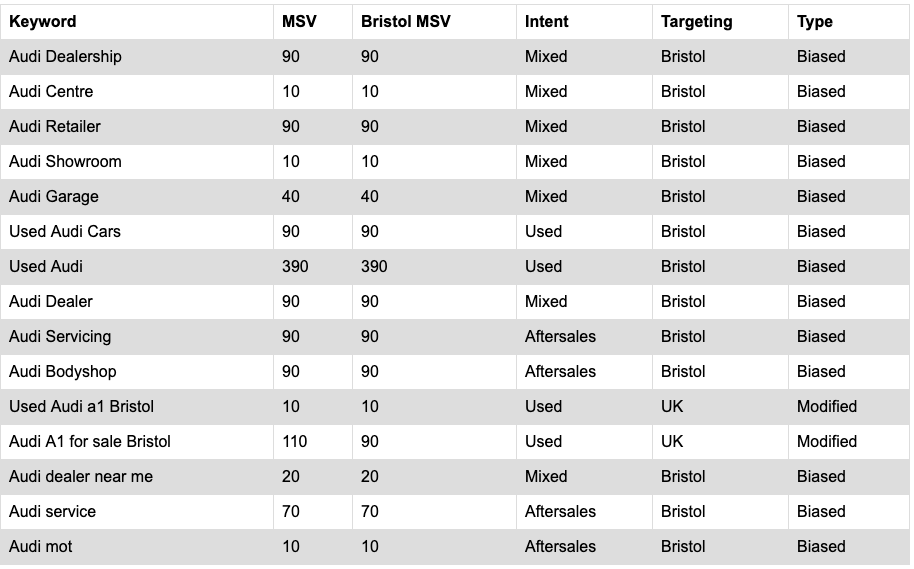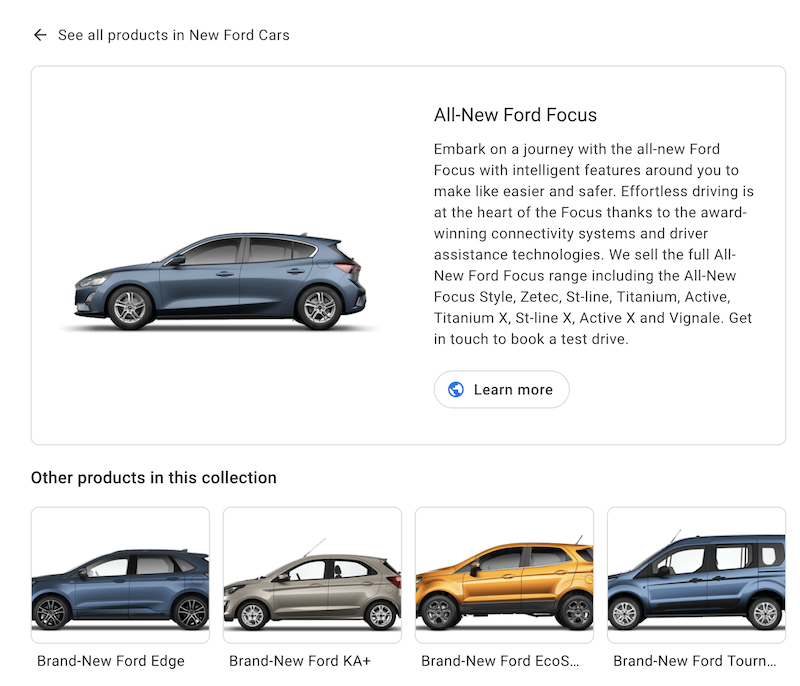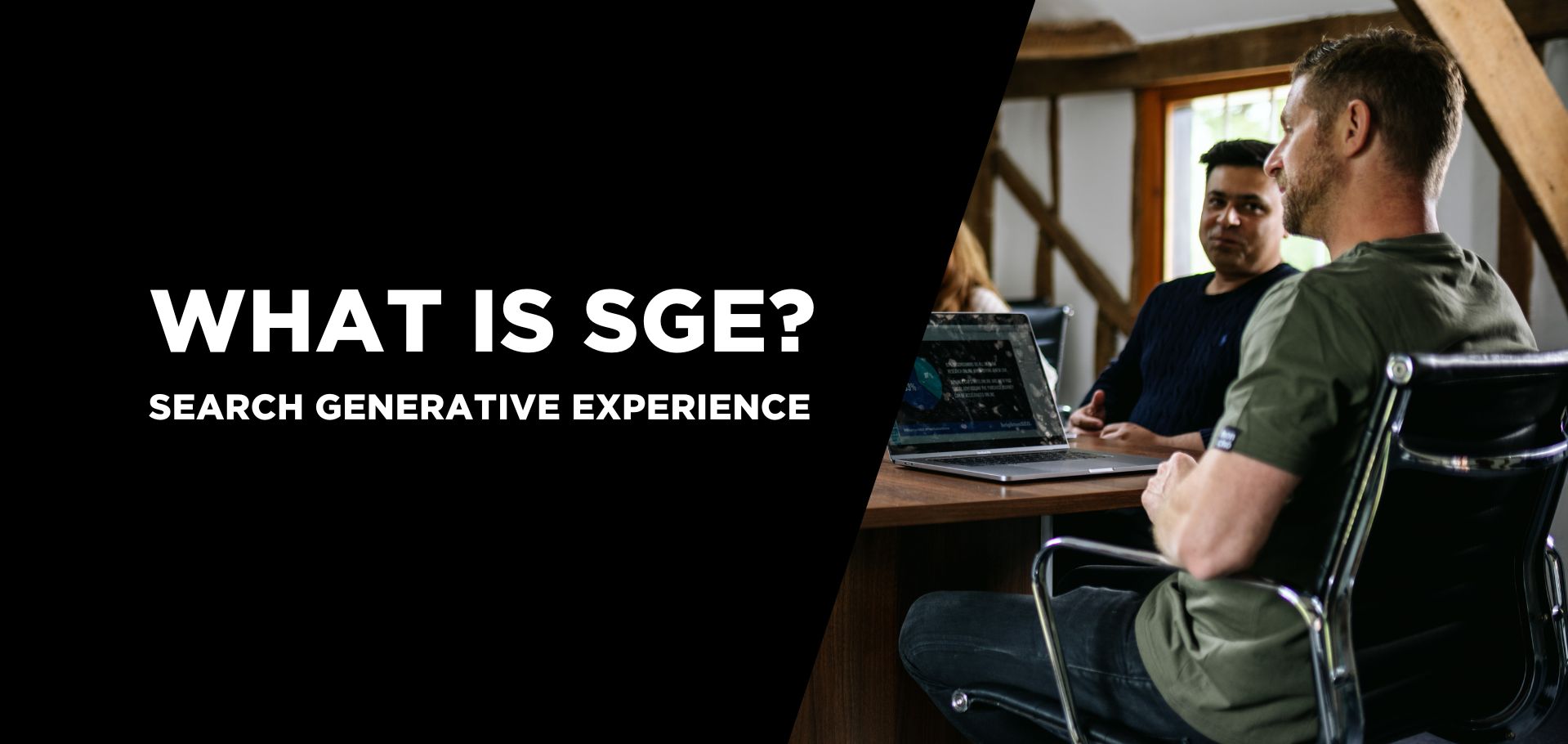2 min read
What is Google Search Generative Experience? (SGE)
What is Google SGE? Think of Google SGE as your helpful buddy on the search results page. Instead of making you click on different websites, it pulls...
Car dealerships are arguably within one of the most advanced and highly influential industries for local SEO. Although car buyers are willing to travel across the country in search of their next used car, many new car sales are location driven. Ensuring you have visibility in your local area leads to the right consumer visiting your dealership site, which will ultimately lead to higher sales.
Whether it’s a single branch, a family of multiple branches, or a new set of dealers from one particular manufacturer or more, ensuring strong visibility within each branch’s local catchment area should be the first priority for any digital strategy.
Broadly speaking dealerships have three main services, new, used and servicing. Driving traffic via local search can boost sales to each of these three services.
If you’re helping car dealerships with SEO, there are many things to consider, including:
Taking an example of an Audi dealership located in Bristol, here are some keyword examples to optimise and monitor for.

In a Google post, they confirmed that bringing relevance, distance, and prominence all together, is their successful formula for finding the best match for local searches. Although at Honchō, we integrate “trust” of the information being served.
1. Relevance:
This summarised component of their algorithm ensures local listings are contextually relevant to the search query.
2. Distance:
This is where Google calculates the distance of potential entities / local businesses and the searcher’s device IP, Gmail account locations and browsing history, as well as the use of a location in the query.
3. Prominence:
Prominence refers to how popular a business is by amalgamating content across the web including links, citations, articles, reviews and more. This is used to differentiate how authoritative a website is from the local and relevant businesses.
4. Trust:
In addition to the above, at Honchō, we include “trust”. Ensuring the results returned by search engines are the best possible match for the user’s query, the business information must be accurate. Doing so provides them with the complete journey between online and offline.
1. Modified local intent: the user includes a geo-location in the search query. For example: “Audi A1 for sale Bristol”.
2. Biased local intent: search engines interpret that you are searching for a nearby Audi dealer, even though it was not specified within the search term.
With recent developments in mobile search (60% of the Google searches now from mobile devices) and more “on the go” searches than ever before, Google is hedging bets towards location based searches. This is evident with queries for “is it going to rain today” growing by more than 85% over the last two years.
Although there are 2 ways of triggering a local result, there are still different search intents behind modified location queries.
To have strong visibility in local search we suggest these 3 basics that you can action today.
Having Google My Business (GMB) is the bread and butter to SEO, but having a well oiled GMB is pivotal for local search. When your GMB appears in local search, it is your best opportunity for someone to click through, so it’s vital that it stands out.
This is your business information displayed on Google. It’s critical that this is 100% accurate. This needs to match up with the details on your site and on business directories to ensure your information is consistent. If GMB details match citations and your website, Google will have more confidence serving the profile in SERPs.
Google My Business allows you to select a primary category and additional categories to describe business offers. Categories can have a large effect on local rankings and help you connect with potential customers, so it is important to use the most relevant category.
For a multi-faceted Audi centre:
Debuting last year, products were introduced as a new feature for GMB. As a car dealership, this is a fantastic feature that gives you the ability to list all of the cars you sell at your local dealerships. Not only does this stand out with image cards at the bottom of your GMB, but it also allows users to browse your products within the SERPs with a customisable call to action button, such as “call dealership” or a link to your site.


Another feature that helps businesses stand out is ensuring you have up to date photos. Customers that have visited can take photos of your business and upload them to your GMB. Tip: after you have a happy customer ready to drive their new car, ask them if they could take a photo and upload it.
Good reviews definitely help your business. Not just for ranking, but for user trust. Encourage happy customers to leave a nice review. If someone, unfortunately, leaves a negative review, respond to them and try to resolve their issue. It shows that your company takes feedback seriously and tries to help concerned customers. Reviews build trust with both Google and users.
Often, many will use LocalBusiness or AutoDealer schema for the schema markup type of the branch. However, with a multi-faceted strategy, it is important to include additional markup types to ensure visibility across all verticals.
Schema is a piece of code placed within the source of a page to give Google context about your business and page. Google often uses that context for SERP features such as featured snippets, product labels, and activity cards.
By implementing schema, you are directly telling Google crawlers what your page and organisation is about. Criteria fields will be filled in, such as type of business, opening times, prices, products, and locations covered.
You will often link products as entities within schema. So for example, if you are selling a Kia, you will have a link to your page selling a Kia and a wiki link to Kia as a brand. This directly links something you’re selling to something Google understands and can create additional connections.
If you are keen to implement a multi-faceted schema mark-up strategy for your dealership, we have provided a template that includes all of the key fields to consider.
[python] “@type”: [“AutoDealer”, “AutoBodyShop”, “AutoRepair”], [/python]You can test your schema script with Google’s structured data testing tool. This is especially helpful when things are not correct as it highlights exactly where your script is wrong.
Whether you have just acquired a new dealership and changed the name or moved location, ensuring citations inspire confidence for the search engines is a critical part of optimising for the map pack. Citations and external sources should confirm the details found within Google My Business and the website.
Business information on key business directories, such as Yell.com, strengthens Google’s trust in your information, provided it is consistent and matches your GMB information.
Google scrapes the internet for information about your business. If your information on third-party sites match up with the information you have listed on Google and GMB, they trust the information and will be inclined to show your business locally.
We have previously spoken about why Google cares about the accuracy of your business information on our blog.
Here are the top 5 SEO Citations for car dealerships:
Creating localised used car pages on popular car models is a good way to target local areas with cars you’re selling. For example, if you have a dealership in Warrington selling Nissans, it’s worth building a local page strategy. So if someone is searching for a Used Nissan Micra in Warrington, creating a local landing page for Used Nissan Micras in Warrington targets those search terms.

2 min read
What is Google SGE? Think of Google SGE as your helpful buddy on the search results page. Instead of making you click on different websites, it pulls...

5 min read
Discover the power of high search volume keywords and how to effectively use them to boost your online presence and drive maximum impact.

2 min read
We're delighted to officially announce our partnership with Eflorist, one of the world’s leading flower delivery brands with over 54,000 local flower...
Having survived the slings and arrows of 2020, car retailers will be prepared for just about anything in 2021.
We’ve got some exciting news – we’re now officially working with Carzam to manage their paid media strategy!
Car dealerships across Britain are being forced to adapt to having less marketing data to drive new business. This comes nearly a year after the GDPR...